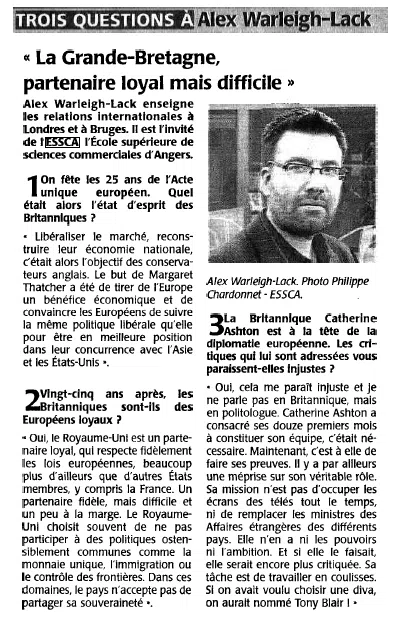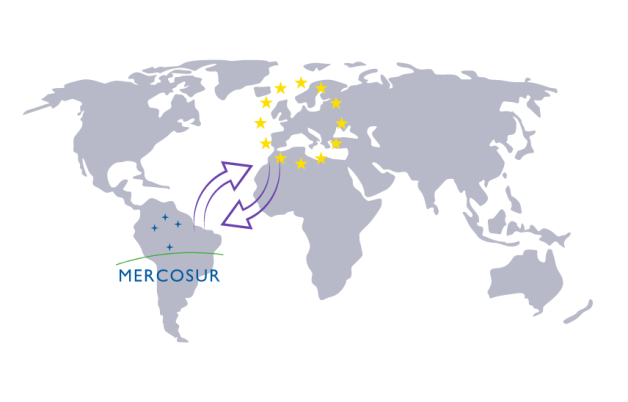Cette histoire est aussi disponible en français, à lire et à écouter sur le site d’Euradio “La chronique d’Albrecht Sonntag”
Five years already since the Brexit referendum in June 2016! When David Cameron officially announced it in February 2016, we decided to follow the campaign in a little blogpost series aptly named “Brexing News“. Checking again, we published over twenty explanatory blogpost from a large variety of contributors during the referendum campaign and another twenty in the year following the vote. Given the quality of the contributors and the immediacy of their analyses, this will be great material for future historians of contemporary history!
But the anniversary also brings back the memory of an ESSCA event five years before Brexit, in early 2011. Our institute, then still called “Centre for European Integration”, received the visit of Alex Warleigh-Lack (today Alex Brianson), who was then professor of politics in Surrey and previously chair of UACES, the major academic European Studies association. Alex gave a lovely public lecture about the “bad romance” between the UK and the EU, depicted as one of these couples that are in a permanent cycle of quarrel, sulking, and reconciliation. Conflictual, but inseparable.
I asked the question what made him so sure the UK would never leave the EU altogether. Was it not possible to imagine a situation in which a weakened prime minister would give in to the temptation to call a referendum, with the objective to both position himself as a profoundly democratic and courageous leader and stifle the nagging minority of europhobes in his own party once and forever? Was it irrealistic to assume that such a referendum campaign would develop its own, uncontrollable emotional dynamic? After all, we were well placed in France to know how quickly fear and anger can topple the trend in such cases.
Kindly, but vehemently, the public told me I was wrong. The British were the paradigm of pragmatism and would always put their objective interest first. And the UK’s position at the decision-making table in Brussels (complete with almost unlimited opt-outs and vetoes) was so much more comfortable than outside the Union. They had their cake and were eating it, too. Why should they give this enviable situation up?
I took well note, was satisfied with my role as devil’s advocate and the interesting discussion we had had, and thought they were probably not wrong.
Two linguistic post-scriptums to this anecdote:
- Nobody made any reference to the UKIP. At the time, in early 2011, they were still considered a fringe group, representing a protest vote of roughly 3% nationwide. Three years later, they won the European elections with 27.5% and kick-started their career in Brussels and Strasbourg.
- Nobody mentioned the term “Brexit”, an expression invented only in 2012 on an obscure blog, in an echo to the much debated “Grexit”, which was an option in the Greek government-debt crisis. I remain convinced that the emotional power of this one-word slogan greatly contributed to its own final victory. Snappy and easy to remember, its very consonance bears a connotation of audacious, determined action rather than cowardly procrastination. And it’s still a sufficiently vague screen that allows projections of fears and hopes of all sorts.
Brexit negotiations may have seemed an endless drag to many observers. But in reality, everything went extremely quickly from an absurd scenario thrown into a harmless debate to an already conflictual post-Brexit coexistence.





